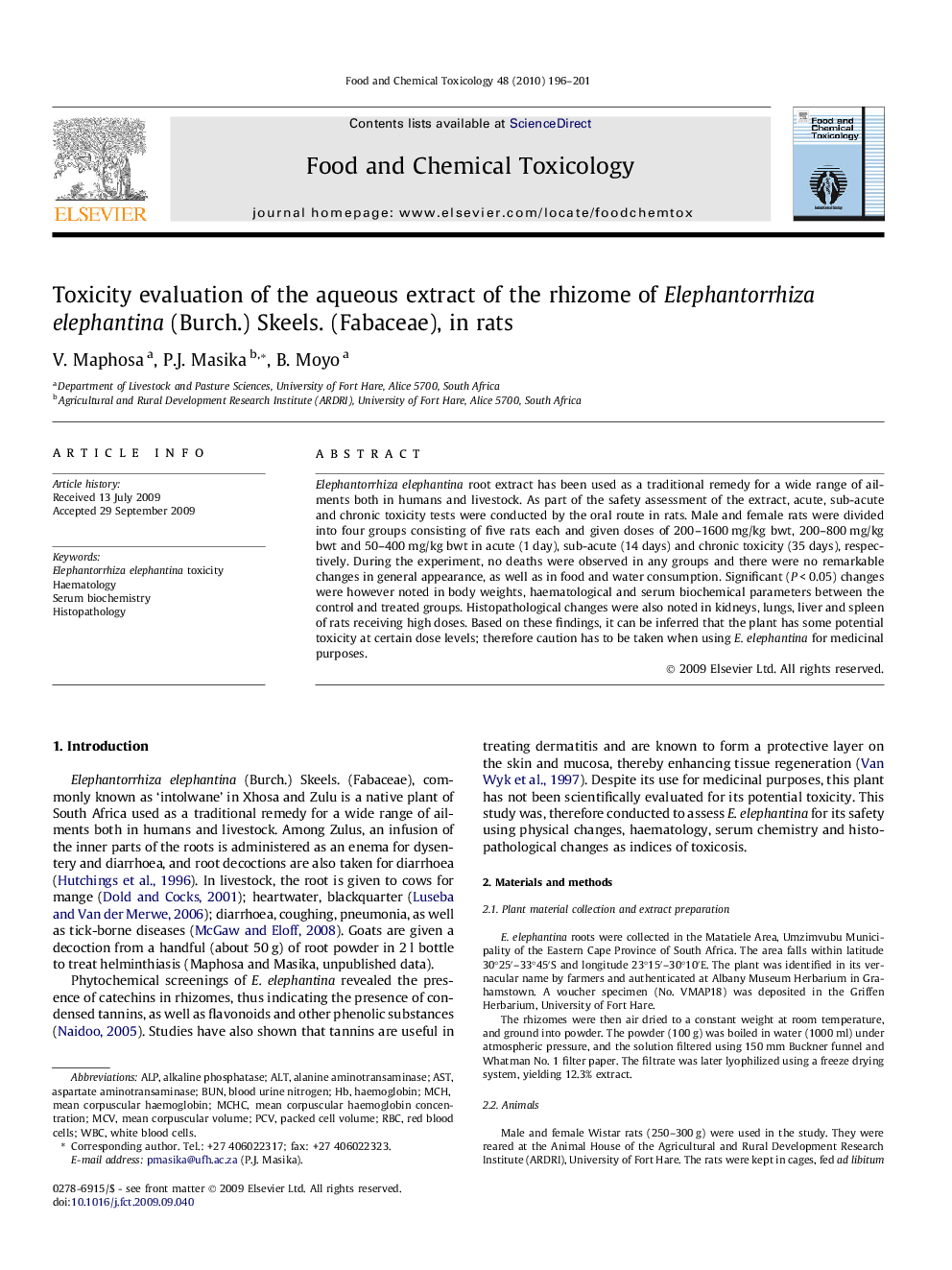| Article ID | Journal | Published Year | Pages | File Type |
|---|---|---|---|---|
| 2585848 | Food and Chemical Toxicology | 2010 | 6 Pages |
Elephantorrhiza elephantina root extract has been used as a traditional remedy for a wide range of ailments both in humans and livestock. As part of the safety assessment of the extract, acute, sub-acute and chronic toxicity tests were conducted by the oral route in rats. Male and female rats were divided into four groups consisting of five rats each and given doses of 200–1600 mg/kg bwt, 200–800 mg/kg bwt and 50–400 mg/kg bwt in acute (1 day), sub-acute (14 days) and chronic toxicity (35 days), respectively. During the experiment, no deaths were observed in any groups and there were no remarkable changes in general appearance, as well as in food and water consumption. Significant (P < 0.05) changes were however noted in body weights, haematological and serum biochemical parameters between the control and treated groups. Histopathological changes were also noted in kidneys, lungs, liver and spleen of rats receiving high doses. Based on these findings, it can be inferred that the plant has some potential toxicity at certain dose levels; therefore caution has to be taken when using E. elephantina for medicinal purposes.
